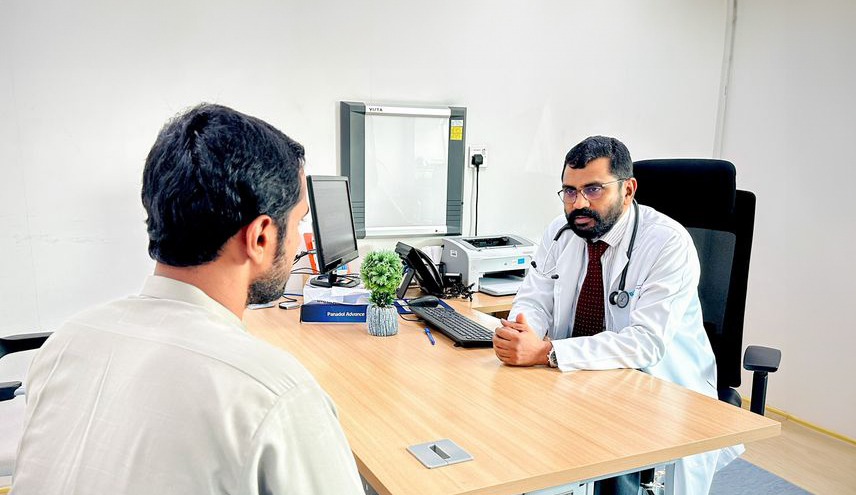Awareness of non-traditional symptoms needed, as disease rises in younger patients
Abu Dhabi/Dubai: Marking World Diabetes Day observed on November 14, doctors in the UAE have called for awareness about the rising trend in diabetes cases, particularly among young patients, with atypical and disguised symptoms.
While diabetes, a chronic condition that leads to elevated blood sugar levels, is traditionally characterised by symptoms like excessive thirst, frequent urination, and weight loss, doctors say it is now manifesting in unconventional ways.
Unusual Symptoms
When 20-year-old Usama Imtiaz Hussain had a fungal infection between his toes, never in his wildest dreams did he expect it would lead to a diabetes diagnosis. His dermatologist referred him to Dr Baiju Faizal, consultant, Internal Medicine, Lifecare Hospital, Mussafah.
Upon evaluation, it was found that Hussain had high blood sugar. His sugar values were above 300, and his HbA1c (three-month average of blood glucose) was 11. While Hussain had no family history of diabetes, he was overweight with a BMI of 32.
Younger patients
“This is the state of diabetes today. We are increasingly diagnosing type 2 diabetes at a young age, unlike before. Rather than classic symptoms of diabetes like increased urination, increased thirst or weight loss, these patients come with other complications like skin and urinary tract infections,” said Dr Faizal, who has advised Hussain with lifestyle modification and strict compliance with medication.
“Earlier patients diagnosed with diabetes were above 40 years of age, but now they are being diagnosed in their 20s and 30s. This is an alarming situation worldwide. The diagnosis of diabetes has a great impact on the patient’s life, both physically and psychologically. Diabetes can affect multiple organs like the heart, nerves, kidneys, and eyes. Therefore, it is important to screen for diabetes even at a younger age,” he added.
According to doctors, the challenge is that atypical symptoms in diabetes can often go unnoticed or misdiagnosed, leading to delayed treatment and potential complications. Early detection of diabetes is crucial for managing the condition effectively and preventing long-term health issues.
Early detection, intervention
Recognising the importance of early detection and intervention, these experts are urging young patients to prioritise regular screenings for diabetes. They also emphasise the need for general practitioners to maintain vigilance regarding diabetes, even when it manifests with unconventional symptoms.
“At a general practice level, doctors should be aware of these complications and check for diabetes. Early aggressive treatment and control of sugar is imperative in preventing future complications,” concludes Dr Faizal.
Last month, the UAE launched a nationwide screening and interventional campaign targeting prediabetic residents titled ‘Show the Red Card to Diabetes.’
Read More: Gulf News
